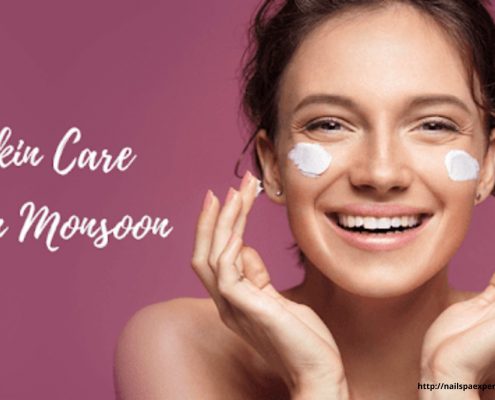The monsoon season arrives, bringing with it some relief from the oppressive heat. The seductive scent of rain, the lush green newly bathed trees, and the freshness of the air are impossible to ignore. However, it, like every other season, brings with it a slew of skin issues.
While the rainy season provides extended periods of rain, it also brings high humidity levels, which may be a nightmare for your skin’s health, especially if you have oily or acne-prone skin.
The basic guideline is to cleanse, tone, and moisturize. Still, we’ll show you how to adapt this vital regimen for the monsoon season, as well as other skin-care suggestions and home remedies to incorporate into your daily practice.
Continue reading this article to learn about the skin-care tips in monsoon from Dr. Swetha, the dermatologist in Indiranagar Bangalore.
Tips for taking care of your skin during the monsoon:
Even if it’s raining or overcast outside, your skin is still vulnerable to the sun’s damaging ultraviolet radiation. To avoid any skin problems, use decent sunscreen every day.
To minimize extra oil and grime, wash your face at least two to three times a day. It will help you avoid fungal infections. To keep your body safe from pollutants that cause acne and pimples, drink plenty of water.
Make an effort to use more natural components for your skin and less commercially purchased skin products that may hurt it.
Makeup can clog your pores and trigger breakouts, so avoid wearing it. Even if you are, make sure you thoroughly clean it before retiring to your bed.
While the monsoon season calls for fried foods, you should avoid them since they might promote breakouts and acne.
Monsoon exfoliation
Exfoliation helps unclog pores by removing dead skin. It also promotes the development of new skin cells, giving you a healthy shine. Coffee, tea bags, sugar, baking soda, papaya, oats, and yogurt are excellent exfoliators. Make sure you use these slightly abrasive substances to exfoliate.
Cleaning during the monsoon
Cleanse the open pores after a thorough exfoliation and enable your skin to breathe. Coconut oil, apple cider vinegar, tea tree oil, aloe vera, lemon, honey, and rose water are good options.
Toning during the monsoon
To remove any remaining debris or makeup, tone your skin. Natural substances like green tea, lemon juice, rose water, cucumber water, and chamomile tea can be used to tone your skin instead of store-bought toners.
Proper moisturizing
Moisturizing is the fourth and last step since it is critical to keep your skin moisturized and smooth. Cucumber, organic coconut oil, hemp seed oil, and olive oil are natural moisturizers. These moisturizers do not clog your pores or make your skin greasy.
Home remedies for your skin-care in monsoon:
To produce a smooth paste, combine fuller’s earth or Multani mitti with rose water and a dash of camphor. Keep this paste in an airtight jar in the fridge and apply a tiny amount to your face several times a day.
Apply Multani mitti, sandalwood powder, clove oil, and crushed neem paste on your pimples to make a thick paste. Allow it to dry completely before using it regularly.
Make a paste using besan, lemon, turmeric, and rose water. Apply the mask to your face and let it on for 15-20 minutes before washing it off. It will give your face a natural shine.
On the other hand, monsoon season can cause fungal and bacterial skin infections in some persons, particularly those who live in highly humid areas or have sensitive skin. Itching, redness, dry, uneven skin, and embarrassment in front of friends and family are possible side effects. If you have similar issues every monsoon season, there are certain things you may do to avoid and treat them.
During the monsoons, fungal and bacterial skin diseases are widespread. If you are experiencing any of these complications, visit Dr. Swetha’s best skin clinic in Indiranagar Bangalore.
During the monsoon season, the warm and humid temperatures provide an excellent habitat for microorganisms such as fungus and bacteria to develop and thrive, causing skin diseases. Ringworms, athlete’s foot, and fungal nail infections are just a few of the frequent skin issues people encounter during the monsoon season.
Here are a few strategies to avoid becoming infected:
- Wear loose-fitting, light-colored clothes that allow your skin to breathe.
- Wear clothing that is clean and dry.
- Shower frequently, wash your hands and keep your nails trimmed.
- Personal hygiene goods like your towels, nail clippers and loofahs should not be shared with others.
- In public locations such as parks and swimming pools, always wear shoes.
- Wear shoes with open toes, and that is comfy.
- If you sweat excessively and have rashes, as a result, use sweat-absorbent patches on your underarms.
- During the monsoons, treatments for skin problems are available.
- The following are some of the treatments for skin disorders like this:
- Always keep the area clean and dry.
- Use antibacterial and antifungal lotions to the afflicted regions.
- To keep the area dry, dust it with antiseptic powder.
- To relieve pain, discomfort, or itching, apply a cold compress.
- Allow the afflicted area’s skin to breathe and avoid covering it with tight clothes or bandages.


